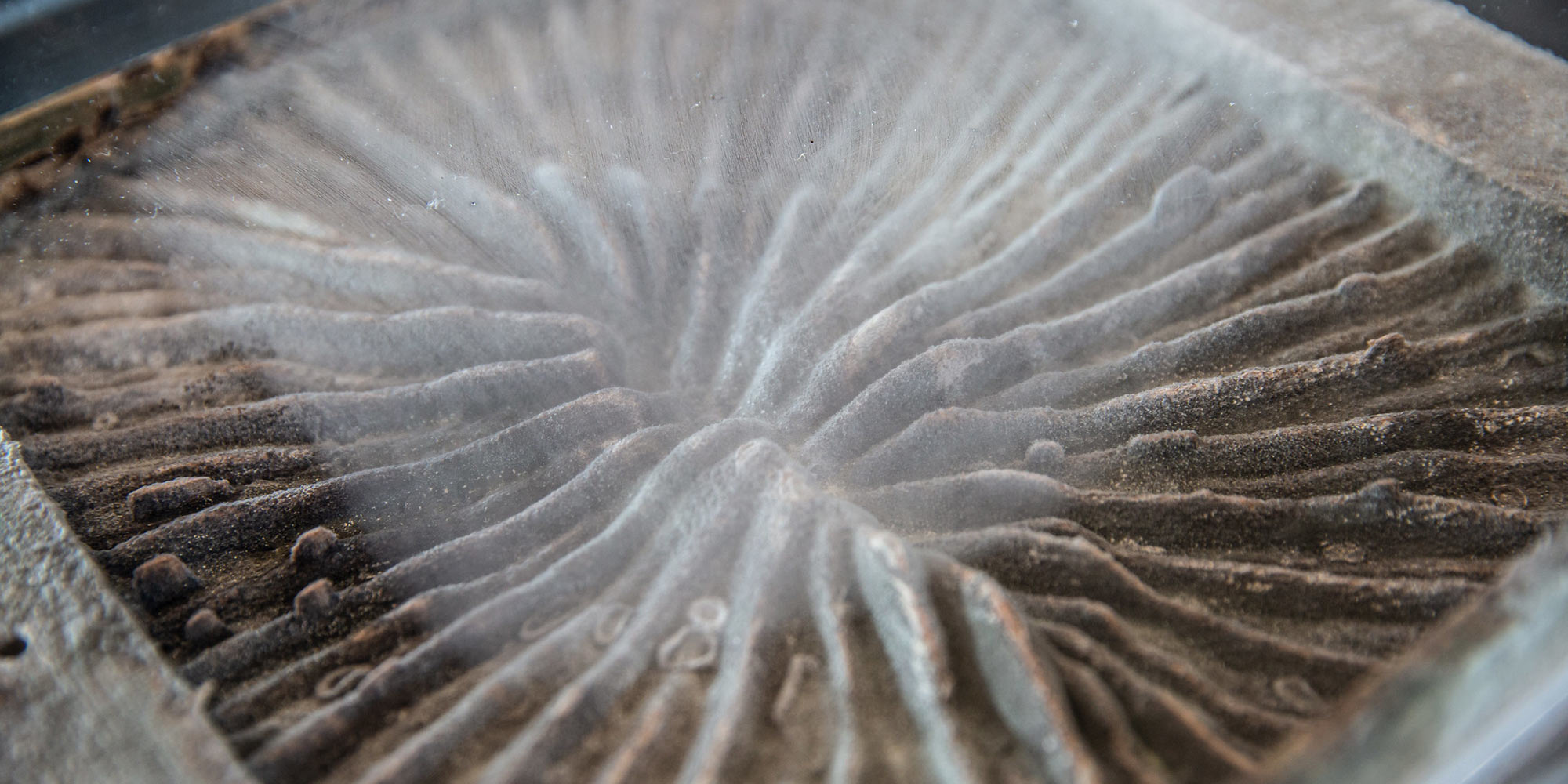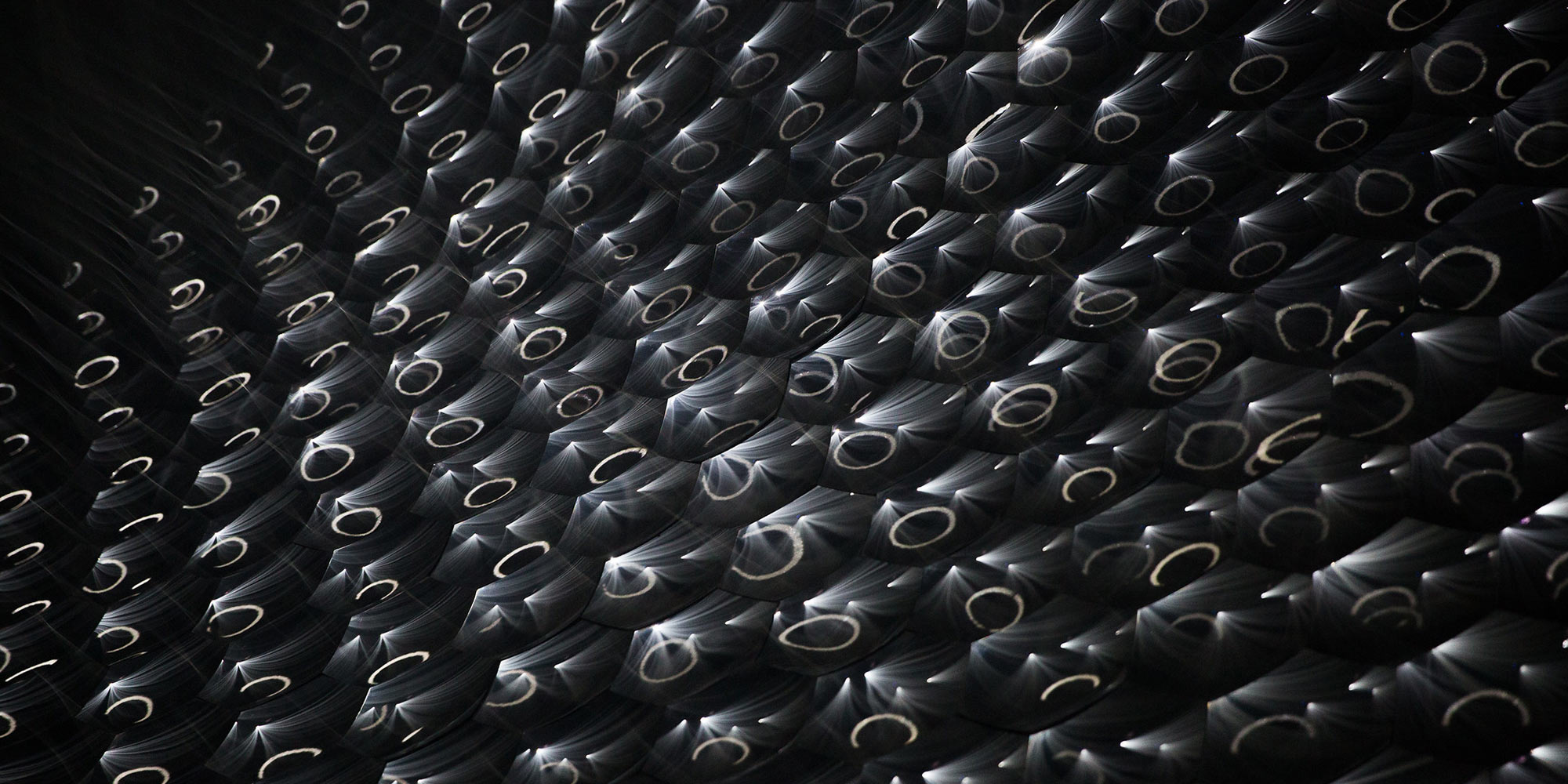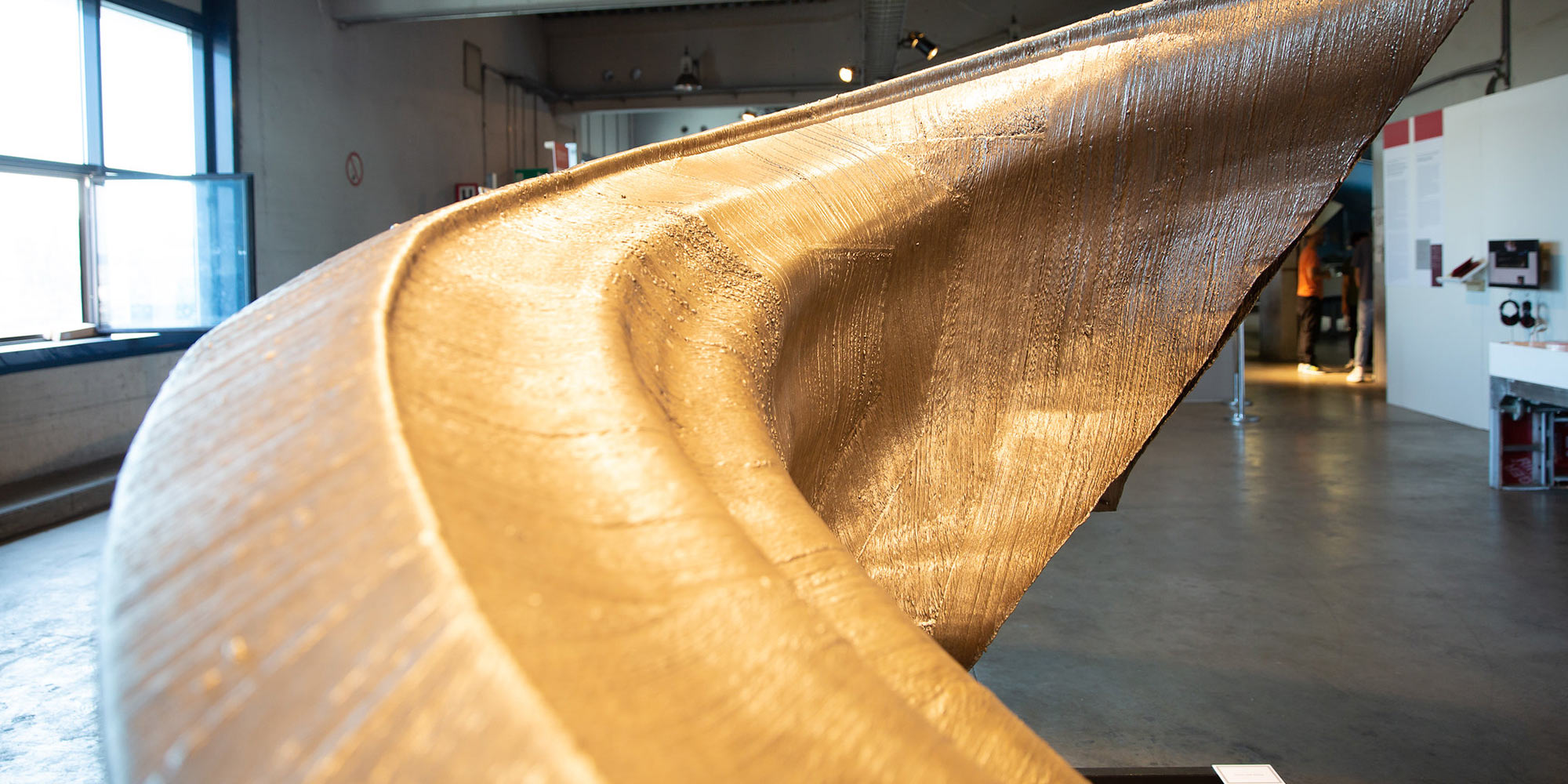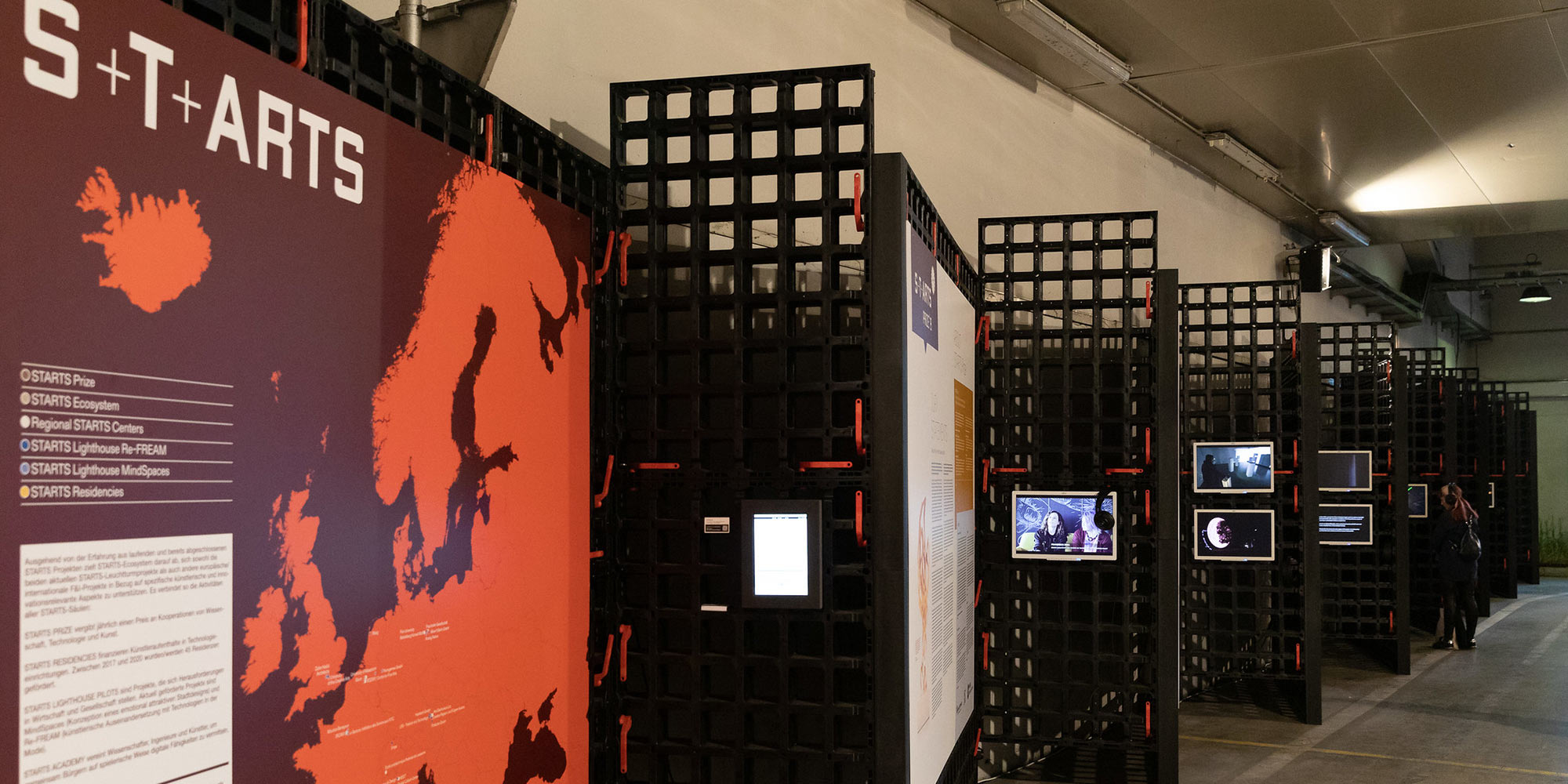The European Commission’s STARTS Prize was established in 2016 and is organized by Ars Electronica. From April 23 to 25, the virtual jury meeting took place, where a five-member jury selects 2 winning projects, 10 Honorary Mentions and another 18 Nominations from all the submissions. We spoke with jury members Francesca Bria and Nicola Triscott about the importance of the award, diversity and the big issues of the future.

Let’s start with the STARTS Prize in general. How would you define it and its possibilities?
Francesca Bria: For me, this year’s STARTS Prize is about urgency, because we as a society are trying to overcome the most severe crisis in living memory. Artists, creatives, technologies, but also policy makers are called upon to answer the burning questions of our time: what do we do in the post-pandemic period to combat the multiple crises around us? Such a crisis can fuel the social imagination – and it is precisely this imagination that we need more than ever to tackle the grand challenges. This starts with climate emergency and ecological change and continues with digital transformation and the healthcare crisis.
We need interdisciplinary cooperation, new, future-oriented thinking and strong collaboration between art, science, technology and design. Artists are very important as critical thinkers of our society, but of course also as drivers of new thinking to address forward-looking issues such as achieving climate neutrality or the transition to a more inclusive, democratic society.
The STARTS Prize is needed more than ever to effectively implement the European approach to technological innovation, which is guided by sustainability, human needs and fundamental values.
Nicola Triscott: It was also an interesting task for me because it’s usually me who argues for the scientific perspective. I’m always the person arguing for collaboration, outreach, and innovative concepts because I’m so interested in the connection between art, science, and technology. And in this jury, I was the person representing the arts. So that was new and quite amusing for me.

How was the jury weekend for you? Are you satisfied with the process and the outcome?
Nicola Triscott: I’m sorry to say that videoconferencing is an unsatisfactory way to hold a jury – even though I realize, of course, that the current time demands it. I don’t know if we would have come to a different conclusion, but it would have been a very different process, a very different kind of conversation. Often it didn’t feel like a conversation at all, it just felt like a series of statements into the void. Also, you don’t see people’s faces and you don’t know how they’re reacting, so it’s not a normal conversation. Under those circumstances, we managed it well.
It helped me that it was a process over three days, because I had time away from the jury hours to think about what was said and dive deeper into the projects. Especially on the last night before the final round, I spent time with the shortlisted projects. That was productive and I am grateful that we had that time.
Francesca Bria: I absolutely agree, this kind of process is definitely better in person. Here I’d like to note that the Ars Electronica team does a great job of preparing the selection process and keeping us on the same level. The jury platform is also a wonderful tool for structuring the process.
I always find it amazing that such a diverse selection of jury members end up agreeing. We come from completely different fields – art, industry, innovation – from geographically different areas, have different backgrounds and yet here we open our perspective, put ourselves in a different position to understand where the other person is coming from and to understand what the value of what we are judging is. This leads us to interact in a different way and this also has to do with STARTS. STARTS doesn’t have a fixed definition, it evolves, also according to the conversations we have in the jury process. I find that very valuable. I learn a lot.

How important is a wide range of diversity on the jury?
Francesca Bria: Diversity is very important. We have created a gender balance with this sensitivity, now we need a territorial balance. We need people from the global south for a different perspective. It is obvious that aesthetics, beauty, values, social impact, socio-economic backgrounds are different depending on where you come from, also needs, problems and urgencies are different.
In the end, of course, the STARTS Prize is about European identity and there are big differences there as well – we [the jury members] come from different countries and different disciplines, so in that sense we represent Europe in a good way.
Nicola Triscott: Francesca is absolutely right. We were quite a white jury. There should be more representatives from the global south. Differences make it interesting!

What were recurring issues within the jury? What was discussed a lot?
Nicola Triscott: We discussed a lot about agency, the political dimension of projects, and the relative importance of individual projects. Towards the end of the jury session, we had a discussion that I hadn’t expected at all, namely the visual communication of a project. What image should we put on the website for it, and what message do we want to convey to the commercial world with it? I hadn’t thought about that before.
Francesca Bria: Politically urgent topics such as climate change, a humanistic view of the digital, etc. were also discussed – some of the jury members were focused on them, while others thought they were too fashionable. We discussed controversial issues in the projects and the role of art in pushing the boundaries through these very controversies. Keeping the balance between innovation, which puts people at the center and includes values and sustainability, and provocation is an important point. The European Commission awards the STARTS Prize to also symbolically stand for this new kind of innovation in Europe, and it wants to convey this meaning to the entire population.
There have been years where the discussion has been in favor of controversy, and others where there is almost guidance for communities on how to change some things, and still others where the focus is on industry and advancing its technological and scientific development.
After three days on the jury: What would you describe as the big topics of our time?
Francesca Bria: Sustainability and climate crisis, circular economy and climate neutrality. These are certainly the most pressing topics because climate change is here, affecting everything, affecting everyone, the security of every person on the planet and that of future generations. Many projects are looking at sustainable solutions in the areas of energy, food, water and oceans.
Another major theme was the issue of empathy and human autonomy in the context of technology. This shows a European touch of innovation, a new kind of humanism that addresses the impact of the Internet and the digital economy on human behavior. It deals with big issues like racial and gender bias in Artificial Intelligence or Deep Fakes, facial recognition, surveillance, digital privacy, data control or Clean Tech or Green Tech and of course the power of tech giants.
We also came to artistic exploration in genetics and medicine, such as medical imaging with a new kind of data exploration and visualization. This kind of collaboration between cutting-edge technology and artistic exploration adds a new dimension to technological innovation.


Nicola, as a first timer, how did you like being part of the STARTS Prize jury?
Nicola Triscott: We have already talked about the content-related disadvantages of the fact that the jury meeting could not physically take place. On the other hand, it also meant that I sit in my kitchen and am “available” to those around me in terms of emails, phone calls, or personal stuff. If you travel to a jury session, you are immersed in that process and those conversations. I really missed that, especially in the beginning, I felt my entry was poor because there were so many distractions.
Apart from that, I was really excited to be invited to the STARTS Prize jury because I’m really fascinated by this prize. In the conversations, I increasingly understood what it meant to other jury members and to Ars Electronica. This would give me a different starting point next time. I agree with Francesca, we absolutely got the right information through Ars Electronica, the portal is fantastic, but with this new knowledge of the meaning, the familiarization with the projects will be a better one.
Overall it was a good experience because it was so intellectually stimulating. This panel was a very different group of people for me, a different kind of conversation. It was very exciting to hear opinions and disagreements because of our different perspectives.
And, you know, it feels important to me right now to be global and in Europe, especially for someone in the UK…
Francesca, you have been a jury member from the very beginning, so you were there for the developments. How did you experience that? And do you have something like a favorite project from all those years?
Francesca Bria: What changed was the way we define STARTS. STARTS is something open-ended – it’s about the journey of exploration at the intersection of art, technology and science. And it’s through this journey of the STARTS Prize that we’re beginning to understand what really makes an impact. It’s not so much that the arts contribute to new product innovation, services, or new output for industry, but rather that we re-evaluate the contribution of arts, culture, and creativity to the development of scientific and technological innovation. In this way, society can be empowered to use the new materials, new knowledge exchange, or new production processes. This is very radical, very new.
For me, there is no one favorite, but I love the collaborative projects. I look for methods of collaboration, how different institutions and groups scattered around the world come together and create these innovative projects that involve citizens from the very beginning. That means social innovation, more sustainability, inclusion and democracy. And that’s what Europe is all about.


 Nicola Triscott (UK) PhD is a curator, researcher and writer, specializing in the intersections between art, science, technology and society. Since 2019, Nicola has been Director/CEO of FACT (Centre for Film, Art & Creative Technology) in Liverpool, UK, where she curated the exhibition And Say the Animal Responded? in 2020. Previously, she was the founding Artistic Director/CEO of Arts Catalyst (from 1994 to 2019) and Principal Research Fellow at University of Westminster (2017-19). She has a PhD in curatorial studies from University of Westminster. Over 25 years, Nicola built Arts Catalyst into one of the UK’s most distinctive and respected art and research organisations, distinguished by ambitious artists’ commissions, including notable projects by Tomás Saraceno, Otolith Group, Ashok Sukumaran, Marko Peljhan, Ariel Guzik, and Critical Art Ensemble. Nicola lectures and publishes internationally.
Nicola Triscott (UK) PhD is a curator, researcher and writer, specializing in the intersections between art, science, technology and society. Since 2019, Nicola has been Director/CEO of FACT (Centre for Film, Art & Creative Technology) in Liverpool, UK, where she curated the exhibition And Say the Animal Responded? in 2020. Previously, she was the founding Artistic Director/CEO of Arts Catalyst (from 1994 to 2019) and Principal Research Fellow at University of Westminster (2017-19). She has a PhD in curatorial studies from University of Westminster. Over 25 years, Nicola built Arts Catalyst into one of the UK’s most distinctive and respected art and research organisations, distinguished by ambitious artists’ commissions, including notable projects by Tomás Saraceno, Otolith Group, Ashok Sukumaran, Marko Peljhan, Ariel Guzik, and Critical Art Ensemble. Nicola lectures and publishes internationally.
 Francesca Bria (IT) is the President of the Italian National Innovation Fund, and Honorary Professor in the Institute for Innovation and Public Purpose at UCL in London. She is a Senior Adviser to the United Nation (UN-Habitat) on digital cities and digital rights. Francesca Bria is leading the DECODE project on data sovereignty in Europe, and is a member of the European Commission high level expert group Economic and Societal Impact of Research and Innovation (ESIR). Francesca has a PhD in Innovation and Entrepreneurship from Imperial College, London and MSc on Digital Economy from University of London, Birbeck. She has been teaching in several universities in the UK and Italy and she has advised Governments, public and private organizations on technology and innovation policy, and its socio-economic and environmental impact.
Francesca Bria (IT) is the President of the Italian National Innovation Fund, and Honorary Professor in the Institute for Innovation and Public Purpose at UCL in London. She is a Senior Adviser to the United Nation (UN-Habitat) on digital cities and digital rights. Francesca Bria is leading the DECODE project on data sovereignty in Europe, and is a member of the European Commission high level expert group Economic and Societal Impact of Research and Innovation (ESIR). Francesca has a PhD in Innovation and Entrepreneurship from Imperial College, London and MSc on Digital Economy from University of London, Birbeck. She has been teaching in several universities in the UK and Italy and she has advised Governments, public and private organizations on technology and innovation policy, and its socio-economic and environmental impact.
